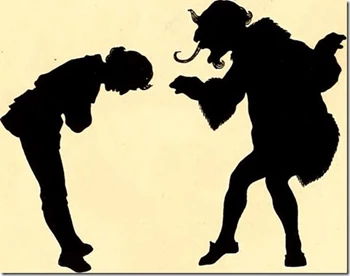 Ethics are in the daily spotlight these days. They're never out of daily consideration for practicing social workers. And ethics are even more front-burner for social workers preparing to pass the social work licensing exam. Let's dive back in where we left off months ago and take the second part of the NASW Code of Ethics section by section. Part two of the code covers SOCIAL WORKERS' ETHICAL RESPONSIBILITIES TO COLLEAGUES. Social work ethics don't end with your interaction with clients. Peers and co-workers are covered too! Like here in the first item, 2.01, Respect:
Ethics are in the daily spotlight these days. They're never out of daily consideration for practicing social workers. And ethics are even more front-burner for social workers preparing to pass the social work licensing exam. Let's dive back in where we left off months ago and take the second part of the NASW Code of Ethics section by section. Part two of the code covers SOCIAL WORKERS' ETHICAL RESPONSIBILITIES TO COLLEAGUES. Social work ethics don't end with your interaction with clients. Peers and co-workers are covered too! Like here in the first item, 2.01, Respect:
2.01 Respect
(a) Social workers should treat colleagues with respect and should represent accurately and fairly the qualifications, views, and obligations of colleagues.
(b) Social workers should avoid unwarranted negative criticism of colleagues in communications with clients or with other professionals. Unwarranted negative criticism may include demeaning comments that refer to colleagues' level of competence or to individuals' attributes such as race, ethnicity, national origin, color, sex, sexual orientation, gender identity or expression, age, marital status, political belief, religion, immigration status, and mental or physical disability.
(c) Social workers should cooperate with social work colleagues and with colleagues of other professions when such cooperation serves the well-being of clients.
In a nutshell, be nice to your fellow social workers!
How might this material show up on the exam?
Imagine a question like this:
A client at an inpatient facility asks a veteran social worker if she can have her case transferred away from a young social worker at the facility. "He has no idea what he's doing," says the client. "He's like a chicken with its head cut off." The veteran social worker has observed the same thing. How should the veteran social worker proceed?
A. Let the client know she's seen the same behavior and follow facility rules regarding transfers.
B. Encourage the client to discuss her wants and needs with the new social worker.
C. Discuss the client's report with the new social worker and a supervisor.
D. Have the client's case transferred to the veteran social worker.
What do you say?
As usual, narrow it down. D. seems too abrupt (not enough respect). A. involves negative criticism of a colleague that may be accurate, but is unnecessary here (still not enough respect). C. would be a better answer if it didn't rope in a supervisor right away (show the colleague some respect--talk to him alone first). That leaves as the best of the offered answers B. Both the client and the anxious social worker may benefit from a discussion about the client's experience of treatment (respect for client and colleague).
It's all about respect!
As with many ethics-based questions on the exam, this isn't a slam dunk. It's not like a DSM question that you either know or you don't. But it's typical of the ASWB exam. You know a couple of answers aren't right and you end up stuck choosing between two that seem pretty good but not great. You take your best shot, you move on, you PASS the exam!
Good luck!
Start with SWTP's complete practice tests by building your own exam bundle here.

 Ethics are in the daily spotlight these days. They're never out of daily consideration for practicing social workers. And ethics are even more front-burner for social workers preparing to pass the social work licensing exam. Let's dive back in where we left off months ago and take the second part of the
Ethics are in the daily spotlight these days. They're never out of daily consideration for practicing social workers. And ethics are even more front-burner for social workers preparing to pass the social work licensing exam. Let's dive back in where we left off months ago and take the second part of the